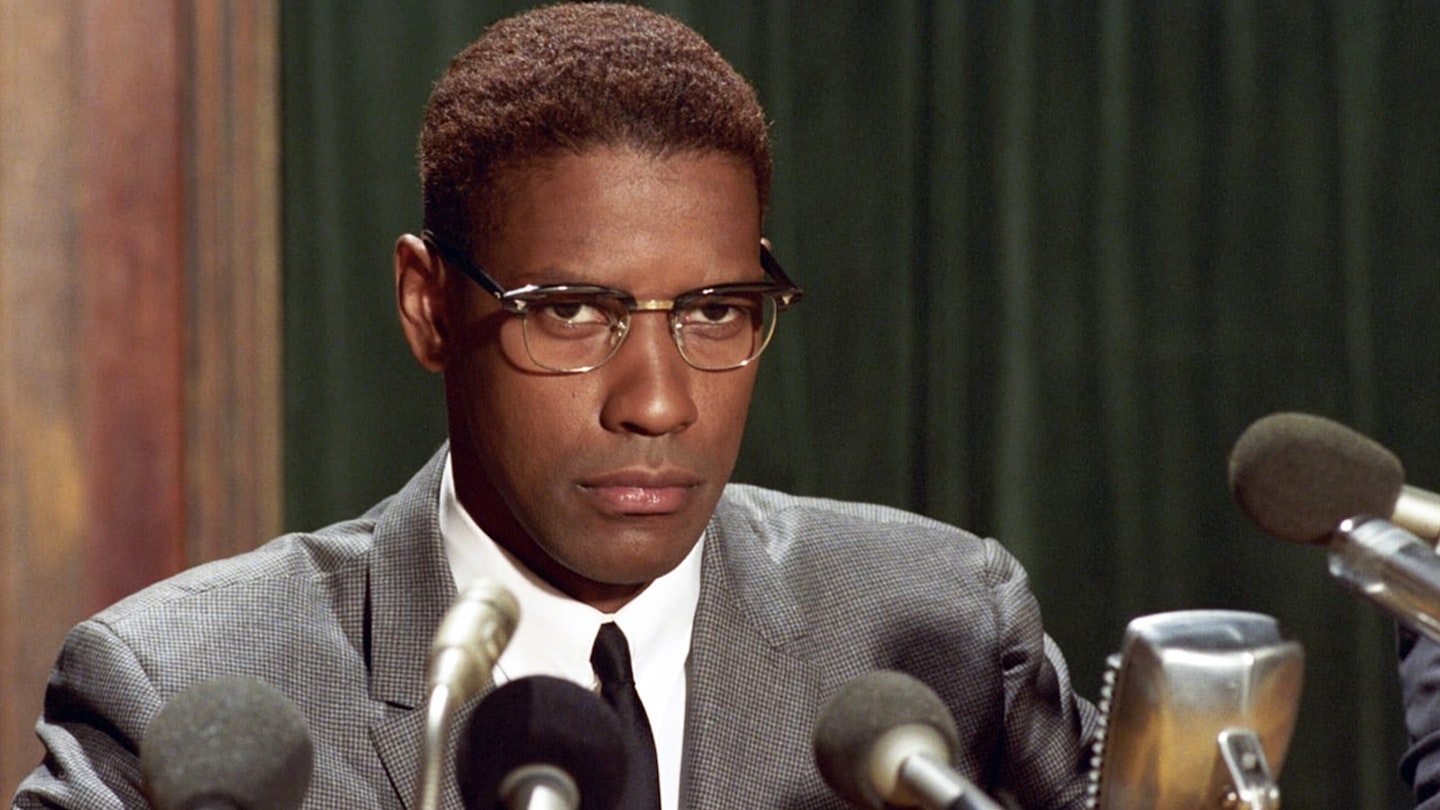Michael B. Jordan, the man behind Adonis Creed and Black Panther’s Erik Killmonger, is clearly a force of nature. But if you ever want to stop him in his tracks, just ask him to pick a favourite Denzel Washington performance. “Denzel has so many great movies — you really can’t pick one,” he says. “It’s like asking what someone’s favourite song is. It's a tough thing.”
It’s a mark of Jordan’s respect for Washington that he’s taking time out from editing his directorial debut Creed III to share his love for the legendary actor, voted by you as one of the all-timers in Empire’s 50 Greatest Actors celebration. The younger actor first recalls seeing Washington in Carl Franklin’s Devil In A Blue Dress, where he played private eye “Easy” Rawlins – a man embroiled in a political scandal investigating a missing person’s case in 1948 Los Angeles. “In an era where there’s a lot of prejudice and segregation, he still felt so strong as a character,” says Jordan. “He was not portraying this subservient, weaker, lesser kind of man, He felt like he was an Alpha who was respected and feared. It was a phenomenal performance. He was the type of guy you wanted to be.”
As an aspiring actor, Jordan subsequently followed Washington’s work closely and found a singular quality across a diverse clutch of characters. “No matter how varied the roles are, the portrayals are always honest,” says Jordan. “He finds the truth in these characters and he tells the truth. He has a strength and a command. You can feel it.” As a major Washington Stan, Jordan has a cultured, passionate take on the actor’s career – meaning his tastes go beyond the easy, first-base choices. Just ask him about Washington’s Oscar winning turn as Alonzo Harris in Training Day. “Alonzo's at the top of Mount Rushmore.” He says. “But it’s easy and convenient for people to say that’s their favourite character of his. Obviously, that’s the one that he got the Best Actor [for], but for me, personally, there are performances before that that should have got the same attention.”
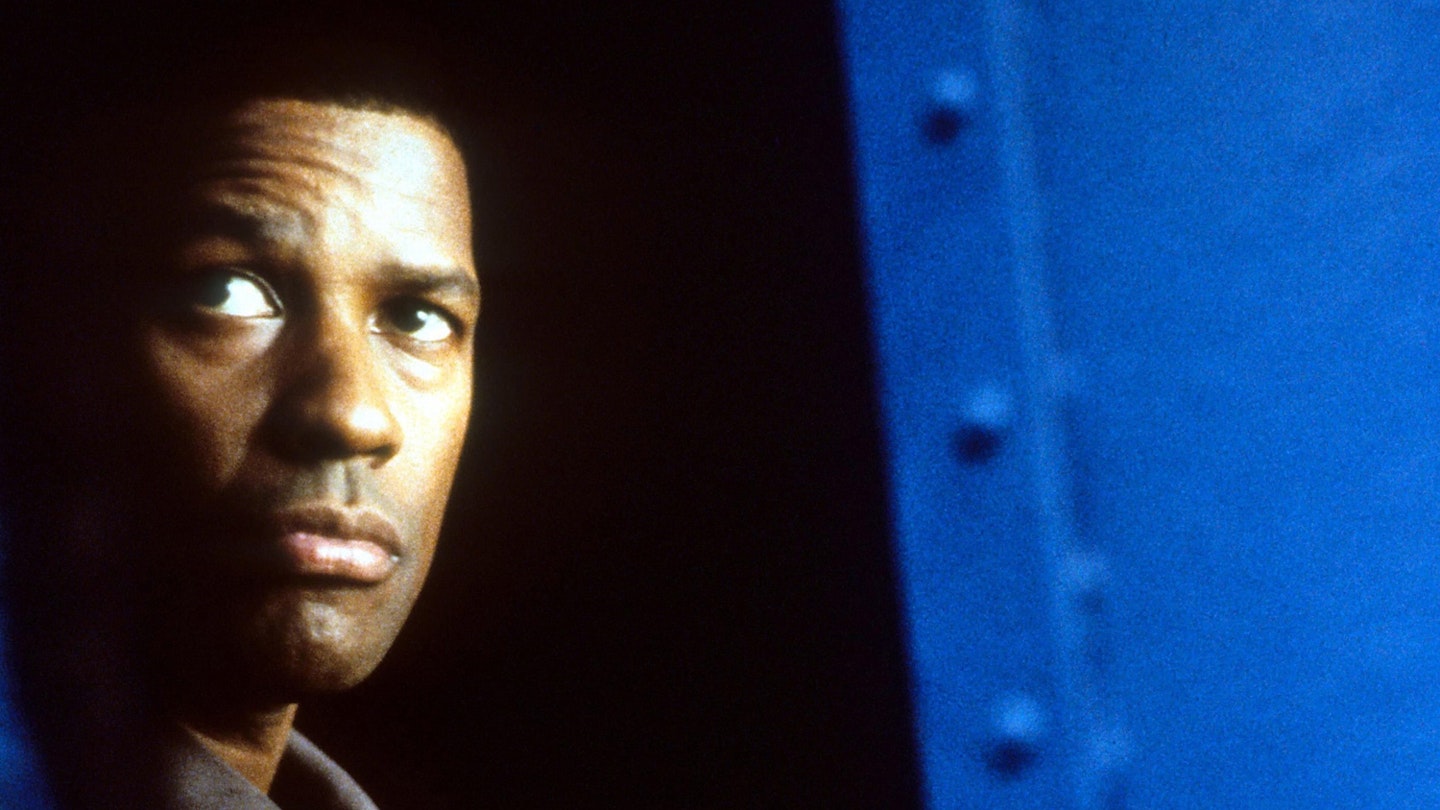
Some of those performances include Detective John Hobbes in Fallen (“A movie I really loved”), Rubin Carter in The Hurricane (“Shit — another great one”), Joe Miller in Philadelphia (“Phenomenal”), and Lincoln Rhyme in The Bone Collector (“He did an amazing job as a man with paraplegia”). Yet Jordan reserves special mention for Malcolm X. Washington’s second collaboration with Spike Lee after Mo’ Better Blues (“They needed each other,” says Jordan simply) sees the actor give a tour de force performance, perfectly etching X’s different iterations – the small-time criminal Red, the increasingly politically-aware Little Malcolm, the militant Malcolm X, and el-Hajj Malik el-Shabazz – with a mixture of charm, fierce intelligence, and righteous power. Perhaps most importantly, he played the man, not the icon. “He perfectly channels Malcolm at various stages of his life. What that movie meant for this community and this culture, was extremely, extremely powerful. Just his range as an actor. I think he did an amazing job.”
What makes him such an amazing film actor is the the, energy, and preparation that he spent on Broadway.
Washington first played Malcolm on stage in Laurence Holder’s When The Chickens Came Home To Roost, and for Jordan, much of Washington’s prowess as an actor lies in his grounding in theatre – cutting his teeth on Shakespeare’s Coriolanus and his award-winning performance in A Soldier’s Play. “He’s a sound professional actor,” says Jordan. “He not only understands rehearsals very well but also storytelling, the process of finding a character. What makes him such an amazing film actor is the time, energy, and preparation that he spent on Broadway. All those chops were honed and refined in theatre.”
One such skill is to be the perfect scene partner. “That moment in Fences when he’s arguing back and forth with Viola Davis,” recalls Jordan. “His ability to listen, and perform while he is listening, is so powerful.” Ask him to pick more indelible Washington moments, and Jordan comes up with enough cuts of DW magic to fill out any lifetime achievement supercut. “Shadow boxing in the cell as Rubin Carter in The Hurricane,” he says. “Or in He Got Game, when he’s playing one-on-one with his son in the park. His Harlem speech from Malcolm X would certainly make the highlight reel. And, of course, ‘King Kong ain’t got shit on me’ from Training Day. The list is endless.”
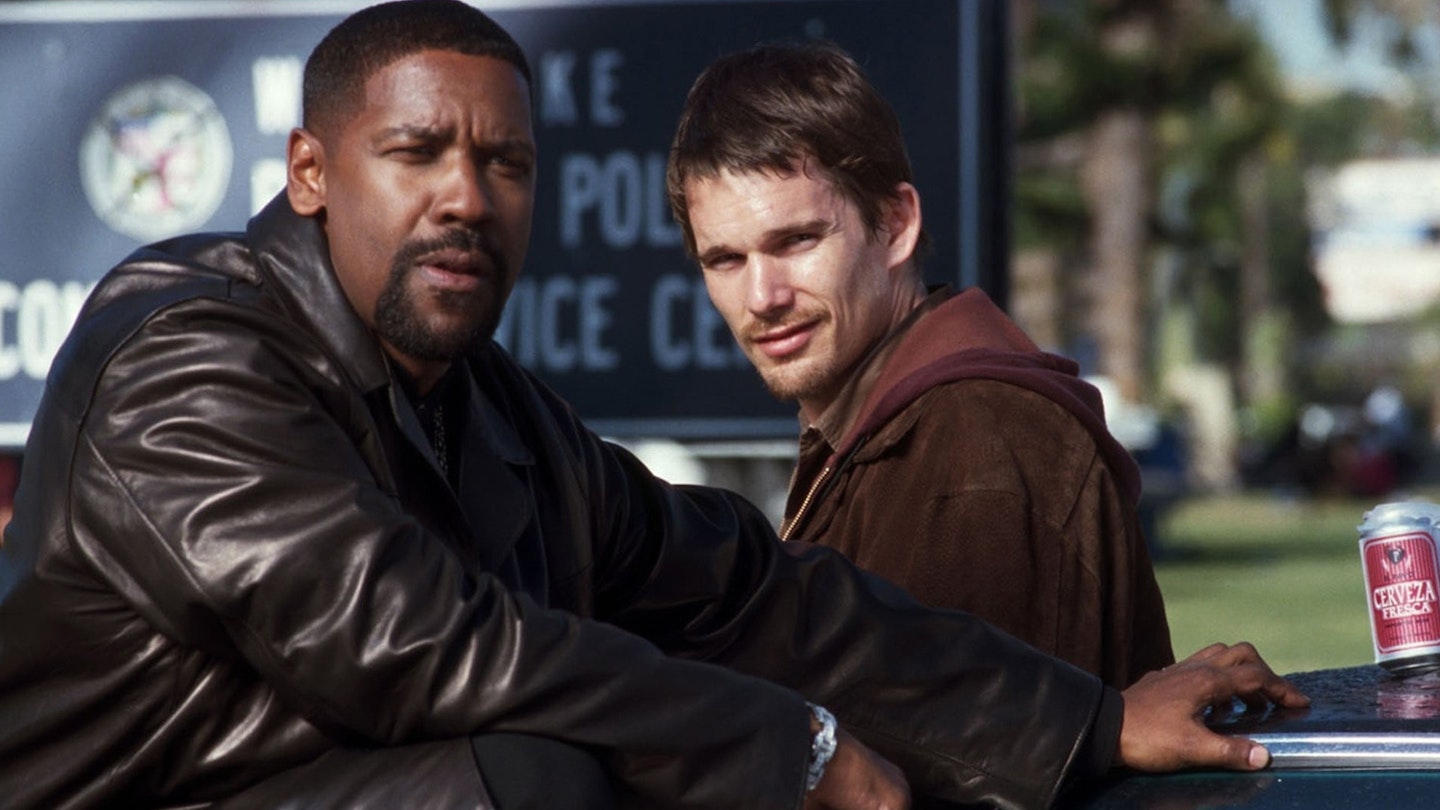
Since discovering Washington in Devil In A Blue Dress, Jordan initially used the actor as a role model – someone to draw and learn from. “I would think ‘What can I take from him? What can I steal or borrow from him? What tricks or tips in the process or approach that he has can I lend to my game?’” But as Jordan’s career blossomed, the influence became more direct. Washington not only mentored the actor as he’s risen up the Hollywood ranks, but also directed him in Iraq war drama A Journal For Jordan in 2021.
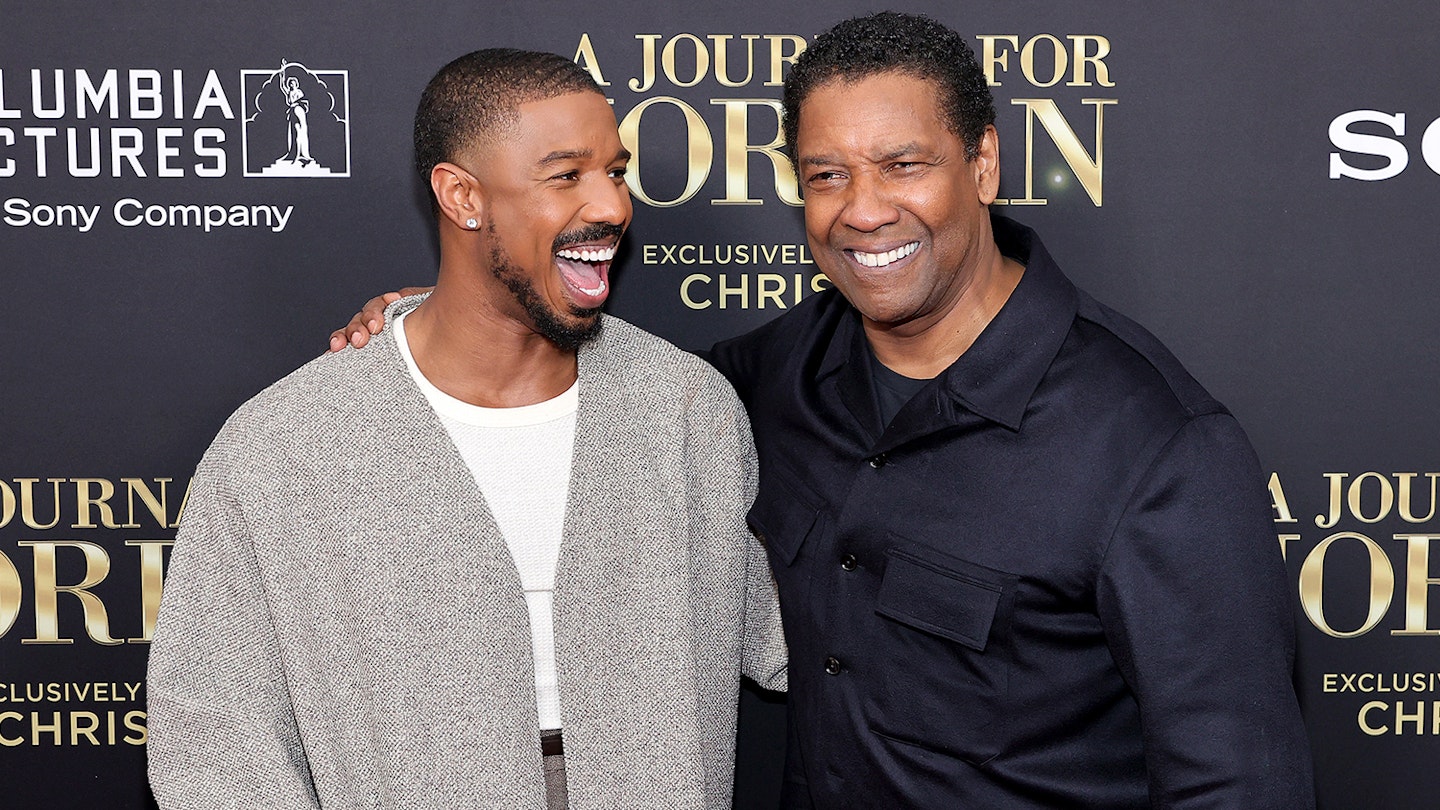
“There's also the personal knowledge that he's given me, the times that he's prayed for me, the time that he listened when I needed to talk, the time that he and his lovely family have been there for me,” says Jordan about Washington’s impact on him. “It pushed me, and he's brought the best out of me, in front of the camera and also in life.”
Denzel Washington: the GOAT, on-screen and off.
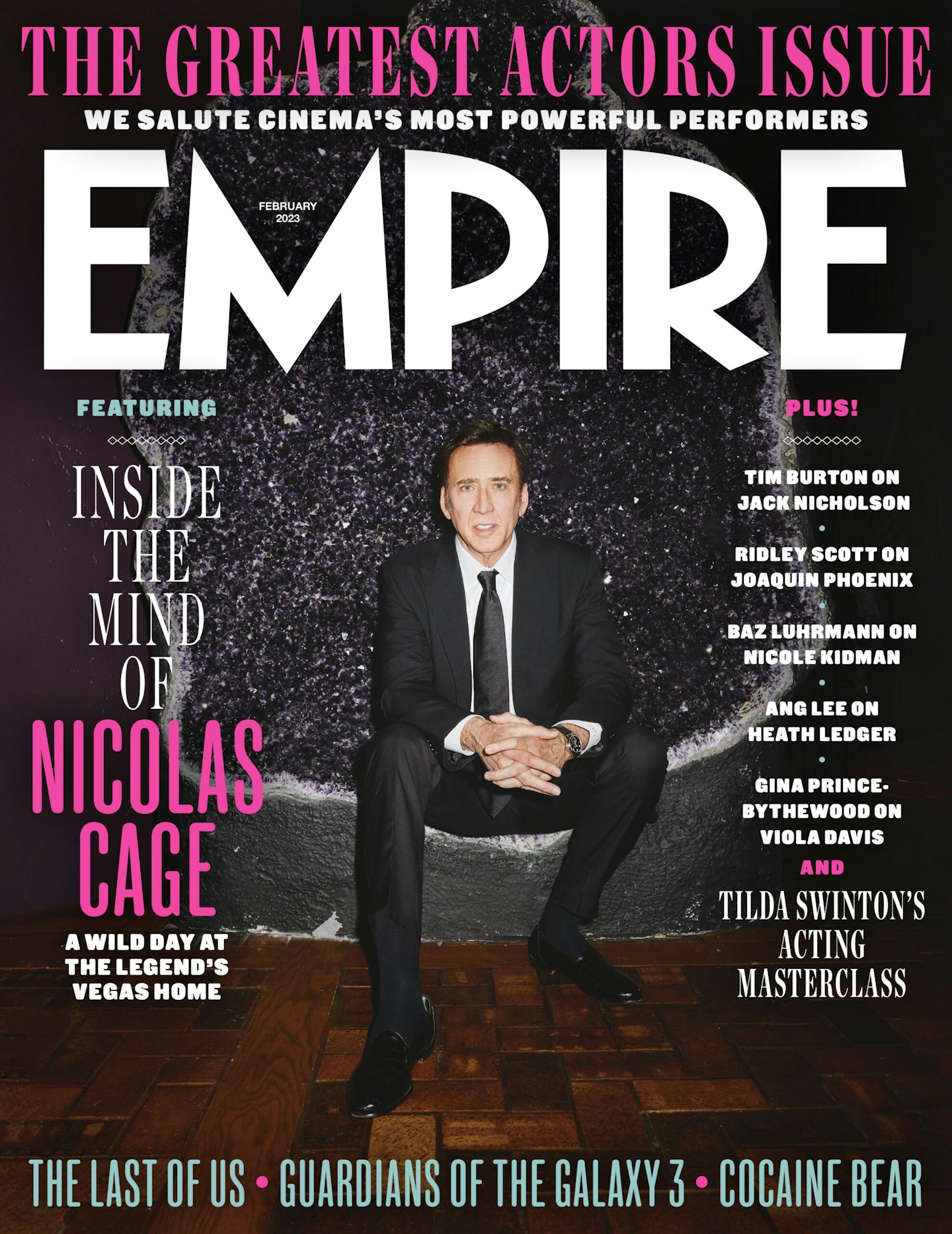
Read Empire’s full 50 Greatest Actors celebration – including a wild day spent at Nicolas Cage’s Las Vegas house, an acting masterclass from Tilda Swinton, and many more director tributes – in the February 2023 issue, on sale now. Order a copy online here.
